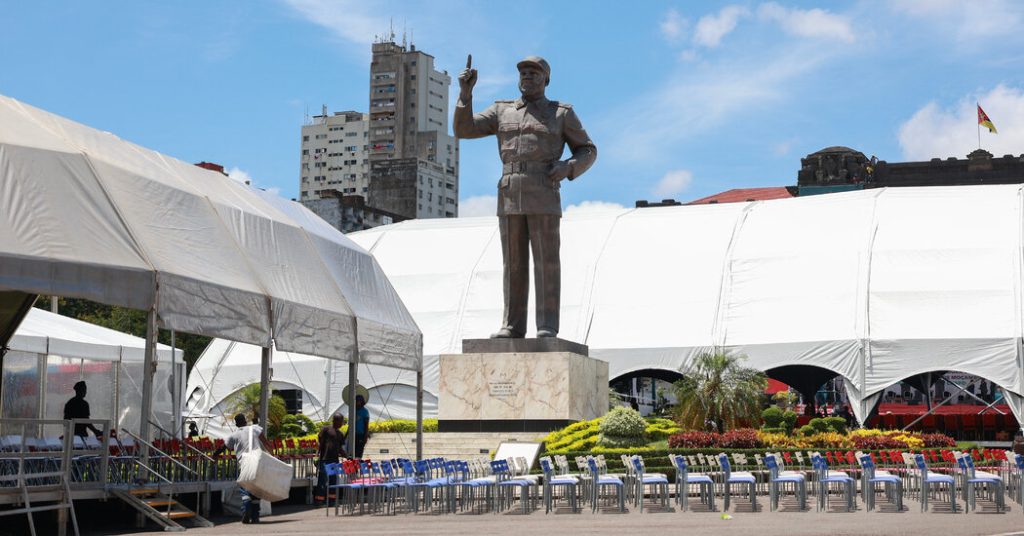The inauguration of Mozambique’s new president, Daniel Chapo, marks a turning point for the nation and its ruling party, Frelimo. Once revered as liberators from Portuguese colonial rule, Frelimo now faces unprecedented public dissatisfaction and accusations of fraud following the October 2023 elections. The widespread protests, resulting in hundreds of deaths, underscore the deep-seated frustration with the party’s perceived corruption and failure to address economic hardships. This discontent, coupled with the rise of a charismatic opposition leader, Venâncio Mondlane, who claims to have won the election, presents a significant challenge to Frelimo’s grip on power. The inauguration, instead of ushering in an era of reconciliation, may well be the beginning of a more turbulent political chapter for Mozambique.
The roots of the current crisis lie in the growing disconnect between Frelimo and the people it once championed. Early generations viewed the party as a beacon of hope, promising jobs, housing, and an end to racist policies. However, over time, accusations of corruption and self-enrichment have eroded public trust. The rising cost of living has further fueled discontent, leaving many Mozambicans feeling betrayed by the party they believed would uplift them. The October elections, marred by allegations of fraud, served as a catalyst for the widespread protests and violence that have gripped the nation. The opposition’s boycott of Parliament signifies the depth of their distrust and their determination to hold Frelimo accountable.
Venâncio Mondlane, the opposition leader, has capitalized on this discontent, attracting a large following of young people who see him as a champion against the corrupt political elite. His populist message resonates with a population struggling with economic hardship and disillusioned with the ruling party. Mondlane’s call for continued protests, though not as disruptive as in previous months, maintains pressure on the government to address the public’s concerns. His proposed reforms, including housing initiatives and a fund for women and youth-led startups, aim to tackle the very issues that have fueled the widespread discontent.
Daniel Chapo, Frelimo’s surprise presidential candidate, inherits a deeply divided nation grappling with complex challenges. His background, marked by a childhood kidnapping during Mozambique’s civil war, offers a unique perspective. He enters the presidency at a time when the party’s reputation is at its lowest ebb. His challenge lies not only in addressing the immediate political crisis but also in restoring public faith in Frelimo. The party faces the daunting task of reinventing itself and addressing the very real grievances of the people. Ignoring the public’s outcry is no longer an option.
The path to reconciliation and stability in Mozambique hinges on dialogue and meaningful reforms. Mr. Mondlane has expressed his willingness to negotiate with Mr. Chapo, offering a glimmer of hope for a peaceful resolution. However, his insistence on continued pressure suggests that he will not settle for empty promises. Frelimo must demonstrate a genuine commitment to addressing the concerns raised by the opposition and the public. This includes tackling corruption, reforming institutions like the electoral commission and the courts, and implementing policies that address the economic hardships faced by ordinary Mozambicans. The future of the country depends on the ability of both sides to find common ground and work towards a future where the needs of the people are prioritized.
The road ahead for Mozambique is fraught with challenges. The deep-seated distrust between the ruling party and the opposition, coupled with the economic and social crises, requires a concerted effort from all stakeholders. Frelimo’s ability to adapt and address the public’s concerns will determine its future and the stability of the nation. The upcoming negotiations between President Chapo and Mr. Mondlane represent a crucial opportunity to chart a new course for Mozambique, one that prioritizes good governance, accountability, and the well-being of its people. The success of these negotiations will determine whether Mozambique can emerge from this period of turmoil and fulfill the promise of a better future envisioned by its founders.











